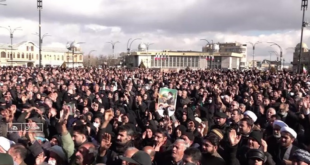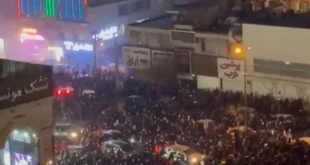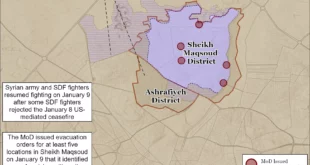DAMASCUS (AP) — A UN investigator on Tuesday interviewed Syrian President Bashar Assad about the assassination of a former Lebanese prime minister, an encounter the Syrian leader had previously twice declined. No details were released, but a spokesperson for the UN commission and the official Syrian Arab News Agency reported that chief investigator Serge Brammertz met Assad and Vice President Farouq Sharaa separately. The interview was a milestone in the commission’s 10-month-old investigation into the truck bombing that killed Rafiq Hariri and 20 others in Beirut on February 14 last year. Assad refused two requests for an interview last year and the UN Security Council twice accused Syria of failing to cooperate with the commission.
The United States had warned Syria the Security Council would take action unless it cooperated fully with the commission, whose interim reports have said that Syrian and Lebanese intelligence agents were involved in Hariri’s killing.
Syria has repeatedly denied any role in the murder. The killing provoked an international outcry that ultimately forced Assad to withdraw the Syrian army from Lebanon in April 2005, ending nearly three decades of military dominance of the country. Brammertz is certain to have asked Assad about the accusation that he threatened Rafiq Hariri when he met the Lebanese prime minister in his office in August 2004.
According to testimony to the commission, Assad said he wanted the term of Lebanon’s pro-Syrian president to be extended, a move that Hariri was known to oppose, and threatened to crush anybody who got in the way. In media interviews, Assad has denied threatening Hariri and pointed out that Hariri later voted for the extension of President Emile Lahoud’s term.
“Neither me nor anybody else in Syria threatened him,” Assad said in a recent TV interview.
Assad also suggested that Hariri may have lied about the threat to deflect criticism for deciding to vote for the extension.
Vice-President Sharaa, whom Brammertz also interviewed, was foreign minister at the time of the assassination. An interim report last October accused him of lying to the commission in a letter about Hariri’s meeting with Assad.
The Syrian government announced the interviews only after Brammertz had returned to his base in Beirut from his six-hour trip to Damascus in a convoy of 10 bulletproof vehicles.
Brammertz had said in March that Assad had agreed to meet him. Assad had said he expected a “meeting, not an interrogation.” Many Lebanese blame Syria for Hariri’s assassination and for a series of mysterious bombings that have targeted Lebanese politicians and journalists opposed to Syria during the past 14 months. Syria denies involvement in all the attacks.
Four top Lebanese generals — key figures in Syria’s domination of Lebanon — have been arrested and charged with playing a role in Hariri’s killing.
Assad has told reporters that if any Syrian officials are convicted of involvement in the assassination, they would be punished as “traitors.”
 Eurasia Press & News
Eurasia Press & News



